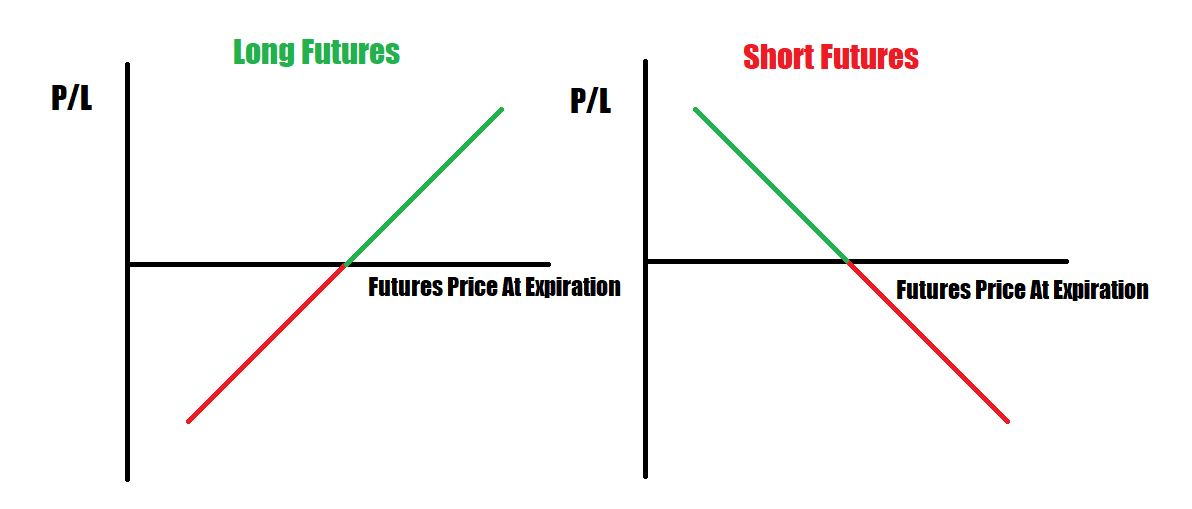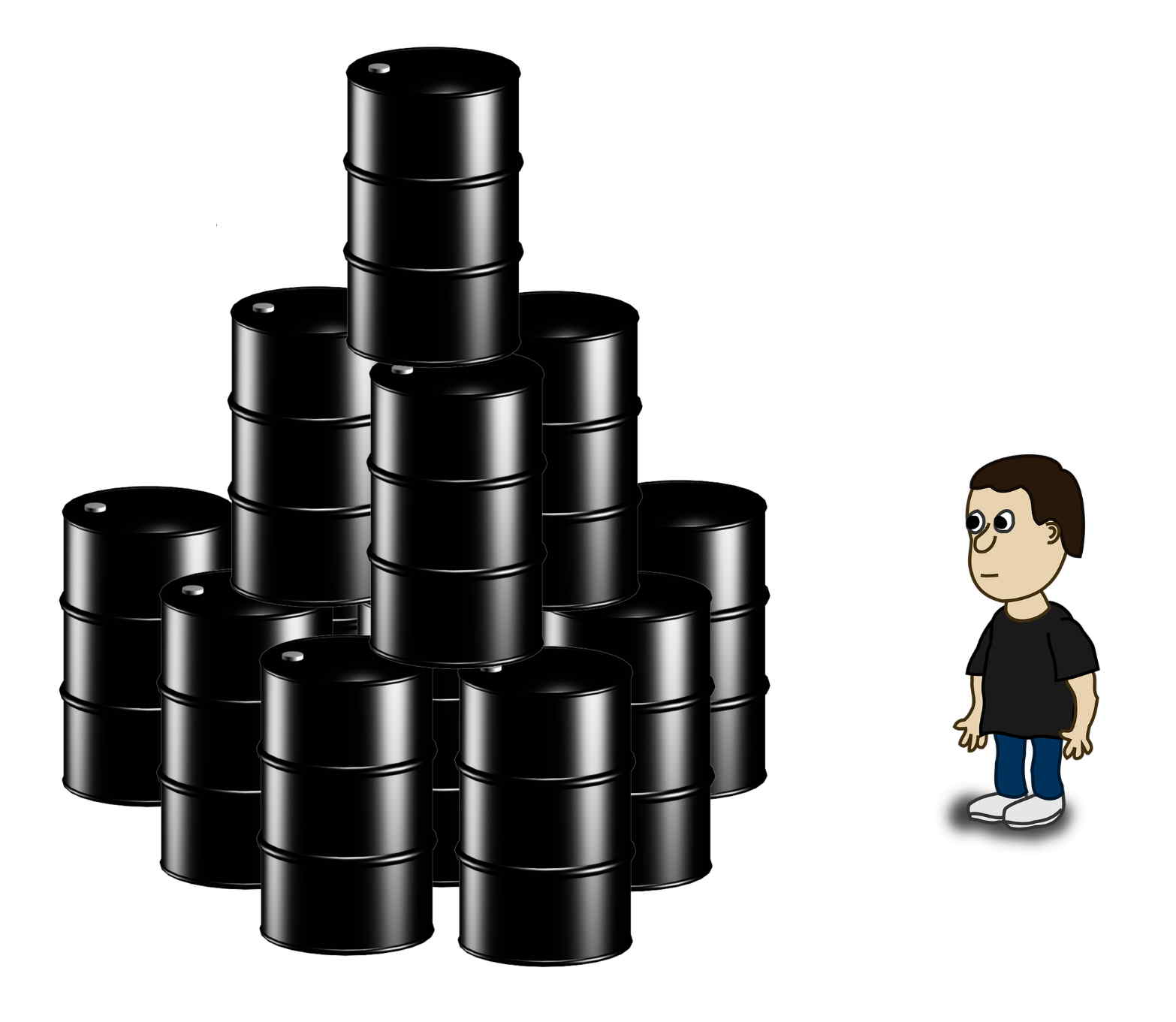Futures are one of the, if not even THE most traded and oldest derivative in the markets. They are standardized, extremely liquid and can be traded on almost any underlying asset or security. Nevertheless, many people either have no idea what futures are or can’t tell the difference between futures and other derivatives like options or forwards. In this article I will try to clarify what futures are, how futures differ from other derivatives and when they are a good investment vehicle.
What Are Futures
Futures are standardized, exchange traded derivatives that are very popular. In other words, futures aren’t fully customizable as all futures follow the same basic guidelines and futures are traded on exchanges meaning that they aren’t over-the-counter (OTC) products that are made from your broker. More on that later.
Other derivatives would be options, forwards, CFDs and many more. But there are some differences between futures and forwards/CFDs. These are not exchange traded because they are OTC products. Most of these derivatives work quite similar and therefore it is even more important to learn the small differences.
How Do Futures Work – Futures Trading Explained
Basically, Futures are an agreement with a second party to buy or sell an asset for a certain price at a future date. The underlying really can be anything, but typically this is some sort of commodity or similar asset. The original idea behind futures is to get rid of unwanted price volatility. Big firms and corporations that are dependent on certain commodities, use futures to guarantee that they can buy or sell these commodities for a certain price on a future date. For example a big oil firm would sell futures to lock in the oil price, meaning if the oil price falls until the expiration date they still can sell their oil at this price. The other side of this trade could be gas stations that buy futures to guarantee the oil for the agreed upon price. This is good for both because with this price both sides can profit from their oil. Without a futures contract, one side may profit from an incline in oil prices and the other side would lose.
Additionally, futures can of course also be used for pure speculation and very many futures are used for that purpose. In this sense futures speculation is quite similar to options speculation. Basically, you buy futures if you think that the price will rise and you sell futures when you think the price will fall. But there are some more things to futures which I want to discuss now:
‘Daily Settlement’
The gains and/or losses made from your futures positions are debited/credited to your account after each trading day. So if you enter a long futures position on an underlying that is trading at 100$ and the price of the underlying moves up one Dollar within one day, you will be credited one Dollar (without leverage factored in). Therefore, you need enough capital in your account to handle the price fluctuations. Otherwise, you can’t open a futures position. If a price fluctuates too much and your account can’t handle that, you will receive a margin call requiring you to deposit more money or your position will be closed. Most brokers only allow you to trade futures in ‘bigger’ accounts and margin accounts.
Payoff Profile

As you can see the payoff profile of long and short futures looks quite similar to the payoff of long and short stock or forward positions. The more the price of the underlying moves in the correct direction, the bigger the profit becomes. The further it moves in the other direction, the bigger the loss becomes. Your P/L at expiration would be the difference between the underlying’s price at entry and on the expiration date. So futures are both undefined risk and undefined profit strategies. I will now move on to the actual differences between all these investment products (futures, options, stocks, forwards…):
Differences

Let’s begin with the more general bigger differences. One big difference between the futures market and the stock/option market are the market hours. The futures market isn’t settled in one central location. The market is open 24 hours a day, five days a week. It opens 5pm. EST on Sunday and closes 4pm. EST Friday.
Furthermore, the difference between futures and many other derivatives is that they are settled physically. This means that the actual physical underlying will be delivered at expiration. For example, if you buy futures on oil and don’t close the position before expiration, a truck full with barrels of oil will come to your house and deliver physical barrels of oil into your driveway. So if you aren’t an institution that actually wants these commodities, it is extremely important that you close any futures positions before the expiration date. It is never nice to have to get rid of huge amounts of commodities like oil.
What Is The Difference Between Futures And Options
Even though options and futures seem very similar, they do have some essential differences that are important to know. One main difference being that an option buyer has the right and not the obligation to exercise his option. This means that the buyer can choose to buy or sell the underlying asset at the predetermined price. This is different with futures. In futures, both parties (buyer and seller) have the obligation to buy/sell the underlying asset at the predetermined price on the expiration date. The next big difference is that options require a premium to open. So option buyers pay a premium to open their position and the seller receives one. Futures don’t require any premium to open.
Additionally, futures mostly have much larger underlying sizes. One standard option contract controls 100 shares of the underlying asset, whereas futures contracts often control much more.
The last important difference is the payoff profile of these two derivatives. Options are either defined risk (long options) or defined profit (short options). Futures are both undefined risk and undefined profit, just like stocks. This means that there is no limit for your maximum gain/loss.
Future Contracts vs Forward Contracts
Both futures and forwards don’t require a premium to open. But as the gain or loss made from futures is credited or debited to your account daily, you usually need to have enough free margin. So forwards can be opened even if you have no capital/margin to allocate (this may vary from broker to broker). Otherwise, these two derivatives work very similar, have the same payoff and only few differences. But one more difference is that forwards are Over-The-Counter (OTC) derivatives meaning that they usually aren’t standardized and exchange traded. Therefore, liquidity the forwards market is often quite limited and it can be hard to close positions before expiration. On the other hand, forwards often are more customizable in regards to expiration date. Forwards are only seen and used rather rarely in the retail trading market.
Stocks vs Futures
Futures and stocks are actually more similar than you think. The payoff is extremely similar, but there are some other smaller differences. Probably the most obvious being that futures expire after a given period of time. Stocks can theoretically be held on forever. Furthermore, futures offer leverage and stocks don’t. To control 100 shares of a stock, you’ll have to pay the price of these 100 stocks and that price can be rather high. If you buy one stock, you will profit one Dollar for every one Dollar move in it. A normal amount of leverage on futures is around 1:15 meaning that you can profit 15$ from a 1$ move. But this leverage does vary immensely and depends on the underlying that you plan on trading and the broker that you are using.
Last but not least, the futures market is huge and even bigger than the stock market resulting in even higher liquidity. The higher the liquidity, the better. You can learn more about the importance of liquidity HERE.
Risks And Advantages – Pros And Cons Of Futures
As you probably have noticed by now, futures have certain advantages and disadvantages/risks. Here are some of the most important pros and cons:
Pros

- Very good liquidity
- Leverage
- Low commissions compared to other asset classes (depends on broker)
Cons
- Physical Delivery. Always close your position before expiration (unless you want to have the physical underlying delivered to you in large quantities)
- Both parties have the obligation to buy/sell asset

- Limited time
When/How To Trade Futures
Futures are quite versatile products that can be used in a variety of scenarios. I won’t go into detail with when exactly you can use certain strategies. But just to give you an idea, futures can be used for all these things:
- Elimination of price volatility (hedging)
- Market impressions
- Pure speculation
- Scalping
- …
Conclusion
As I mentioned and as you can hopefully see, futures are versatile investment products that offer many advantages over other asset classes. Futures are extremely liquid, versatile and easily accessible for retail traders. Furthermore, they can be traded around the clock. Therefore, they are very good investment products. BUT, just like with all other things in the market, you shouldn’t just try them out recklessly. Before trading futures or any other investment products it is essential to educate and inform yourself first. Without the correct education, you will likely lose your money especially with leveraged investment vehicles like futures.
A good alternative to futures are options. These are a little safer than futures and generally a very good introduction to the derivative market. If you are interested in learning more about options, you may want to check out some of my education:
You can check out my 100% FREE Options Trading Education, HERE!

Hello,
I found your post to be very helpful. I only wish you would have written it and I would have had the opportunity to read it before I made a bad investment in futures years ago. Your advice about being educated and informed before making any kind of investing in futures, stocks, or options is right on point. I was one of those people who did not take the time to get educated on this type of investing and it cost me dearly. You do a good job in laying out the pros and cons and I think anyone reading your article will receive some good information; especially, those who may be as inexperience as I was.
Best wishes,
Queen
Thanks so much for sharing your story. Others can definitely learn from that mistake.
Thank you for the wonderful and informative article.
As i want to make sure that you and me are on the same page, and i already got the main idea of future trading.
Is it like you put your asset in insurance company, so insurance will compensate you once your property damage or something bad happen.
You have mentioned the oil example that if its price goes down so the company that you sell your asset to, is responsible to compensate you if under the date limit?
Thank you.
Yes, that is basically how it works. A futures contract basically is an agreement to buy/sell an underlying asset at a specific price on a future date. I will use coffee as an example. Let’s say you are the owner of a restaurant that sells coffee. To get the coffee you have to buy it from a coffee farmer. If coffee prices go up, you as the owner of the restaurant would lose money because you need to pay more for your coffee. If prices go down, you make more money because you have to pay less. On the other hand, the coffee farmer loses money due to the drop. To prevent these losses through price movements, the farmer and you (restaurant owner) could buy and sell futures. The farmer would sell a futures contract and you would buy it. This futures contract says that you can buy a certain amount of coffee for a certain price (where no one loses money) on a future date no matter what happens with the coffee price.
So to answer your question: you don’t put any asset into an actual insurance company or anything. You just make an agreement with someone else. But note that this is only one of many uses of futures. You can also use futures for pure speculation even if you aren’t interested in the underlying asset.
I really hope this helps.
Hi Louis,
Thanks for doing this article. For some reason I’m having a hard time understanding futures, and probably because I started out learning options.
Conceptually, I’m having a hard time understanding ‘future pricing.’ Here is what I understand so far:
– Futures don’t require premium as you described above, therefore, you don’t ‘pay’ to go long (or receive to go ‘short’), you are simply just getting into an agreement (no money is exchanging hands). The actual cash realization of the agreement is at expiration when ‘delivery’ and ‘payment’ occur and the difference between the ‘exercise’ price and spot price is realized.
– Futures contracts are the same as options without the buyer having rights, only obligations. Delivery prices are agreed upon in the futures contract (i.e. price at which to buy/sell pork bellies). This delivery price (exercise price) does not change.
What i don’t understand:
– First of all, futures traders get confused when i ask them about ‘exercise’ pricing (and strike prices), and say that does not exist in futures when in fact it does. Futures are practically identical to options except for the reasons you pointed out above (obligation vs. right). The exercise price is the ‘strike price’ (the price the long/short position holder agreed to buy/sell the underlying). Why do these terms not exist in futures trading?
– why are futures prices for a specific front month contract only given one figure? Aren’t there many outstanding contracts that others got into that are at different prices? So within a given front month contract, there are many different prices that participants got into, and it’s not just 1 price that is being reported.
In summary, my main confusion is on price. Options are not quoted in only one price because the price depends on strike/expiration. But futures are quoted as if there is only 1 contract with 1 strike (the current future price), but while people get in on today’s future price, tomorrow’s is different, so you have outstanding future contracts at different ‘strikes.’ Why do future contracts have only 1 price?! This implies there is only 1 contract, but there are hundreds of thousands of outstanding contracts.
Hi Tim,
Thanks for the comment. There isn’t really such a thing as a strike price for futures. I think you might be referring to options on futures. There are options that have a futures contract as their underlying security. These have strike prices and expiration dates, but the futures contract itself doesn’t have a strike price in that sense.
I hope this answers your question.
Thanks Louis –
Thanks for the fast response.
Let me try and rephrase my question:
Is the futures price is similar to the exercise price of the option? If so, how is there only 1 quoted future price (current future price)? I’m just confused how a future contract has one price that is constantly fluctuating (like stocks) because once you get into a future contract the agreed upon price (exercise) doesn’t fluctuate.
Hi Tim,
The futures price isn’t really the same as an option’s strike price. It fluctuates like a stock price and it is only really the futures price at expiration that is important for the delivery/purchase of the associated asset. But most futures contracts are closed before they expire.
So if you buy a futures contract at $100 and it expires at $50, you buy the associated asset at $50.
I hope this helps.